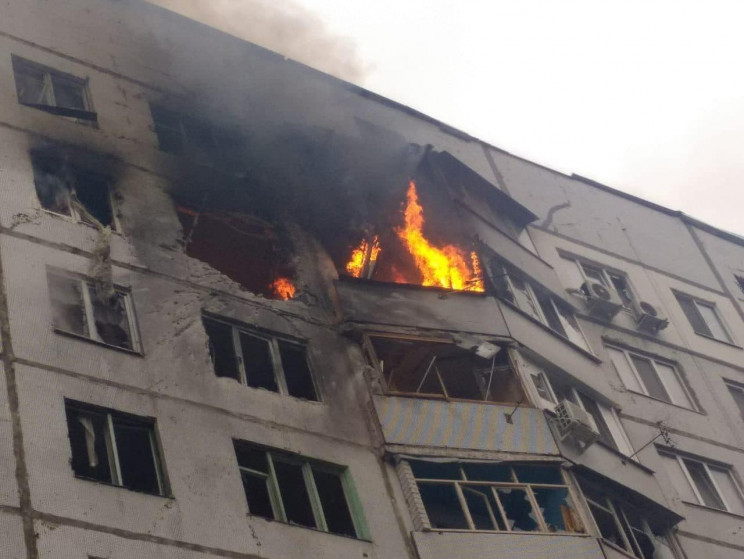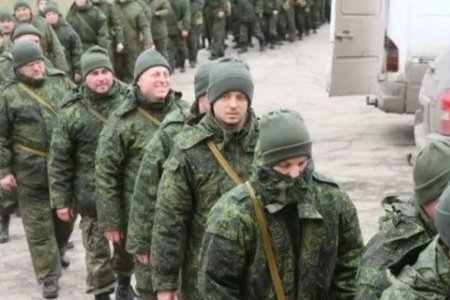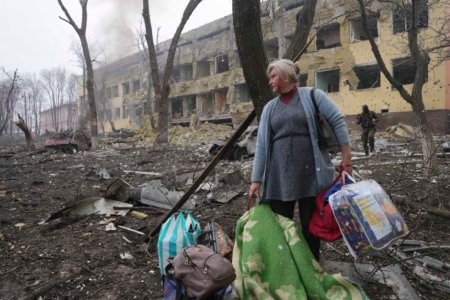
The Russian military who have seized control of Vovchansk in the Kharkiv oblast are believed to have created an effective concentration camp where prisoners are subjected to physical and psychological torture.
Oleh Syniehubov, Governor of the Kharkiv Regional Administration, reported on 24 April that the Russian invaders had plundered the contents of one of the factories in Vovchansk and taken them to the Russian Federation. They had then organized a kind of prison, “a real concentration camp, where people are subjected to torture, forced to collaborate, join the Russian Federation armed forces.” Syniehubov added that in Izyum, which he said is under full Russian occupation, the Russians are also trying to force locals to join the Russian army.
On 25 April, the Kharkiv Regional Prosecutor announced that it has initiated criminal proceedings under Article 438 of Ukraine’s Criminal Code (violation of the rules and practice of war) over the alleged torture in Vovchansk.
Vovchansk is near the border with the Russian Federation and has been occupied since the first days after Russia’s full invasion of Ukraine on 24 February. On 4 March, Vovchansk Mayor Anatoly Stepanets told Suspilne.ua that the Russians, when they entered the city, had taken the Ukrainian flag from his office and from the City Council. “However they didn’t rip out my heart, and didn’t take my conscience away. We were and remain pro-Ukrainian,” Stepanets said. He added that he had refused to give out ‘aid’ from the Russian military.
Such independence is clearly not to the invaders’ liking. Even before an attempt by the Russians on 22 March to stage a stunt whereby local residents sought a replacement for Stepanets, he had, reportedly, been taken across the border into Russia and threatened, if not tortured, into agreeing to collaborate. Stepanets is 64 years old, and was almost certainly tortured or ill-treated in the video here, which appears to suggest that he is a Russian prisoner.
Despite claims that Russia was not seeking to occupy Ukrainian territory, the Russians removed Ukrainian flags from official buildings in the city on 22 March, replacing them with the flag of the invaders. An attempt was also made, under the guise of ‘humanitarian aid’, to trick local residents into supposedly replacing Stepanets with a local criminal figure, Dmytro Chyhrynov or ‘Chyzh’. The latter’s photo may well have been familiar, since it had been on the police station wanted board for some time in connection with a 2015 armed robbery.
It seems that people had arrived at the square in Vovchansk to receive ‘humanitarian aid’. In order to receive it, people were made to write down all of their passport details on some kind of paper which said, in small letters, that they were ‘voting’ for Chyzh as ‘mayor’.
Suspilne’s source, who is not named for his safety, says that the Russians had initially tried to get people to ‘vote’ officially, but nobody had come, so two days later that attempted this farce. He also says that the invaders had hoisted their flag everywhere but that virtually all the enforcement officers, etc. had left on the night of the invasion, with only one officer agreeing to collaborate.
The Russians left Vovchansk after their column of military vehicles was destroyed trying to advance on Kharkiv, however, they returned in the middle of March. The source, when asked if people were prepared to come out on pro-Ukrainian demonstrations explained that they are frightened. The Ukrainian Armed Forces are far away, and they feel cut off. This does not, however, mean that they do not demonstrate resistance. The Russians not only foisted their flag, but also tried to rewrite road signs in Russian by blocking out certain letters. Locals have returned Ukrainian colours to such road signs and re-written the missing letters. There are, however, problems with water, food and communications, and people will be feeling very vulnerable.
Syniehubov was scathing about “the cheap and shameful stunt” that the Russians attempted on 22 March and warned local residents not to believe empty assurances and not to sign any documents.
It is not only Vovchansk where deception has been used to get people to put their names and other passport details on what are, in fact, to be presented as ‘ballot papers’. A similar stunt has already been played out in Rozivka [Zaporizhzhia oblast] and may well be tried in other areas. There is nothing to suggest that the Russian invaders have managed to achieve any such pseudo ‘elections’ or ‘referendums’ without deceit. They are also resorting to threats and force to try to get ‘fighters; for their war against Ukraine, as well as medical staff. Ukraine’s Military Intelligence [HUR] reported on 23 April that junior medical personnel from Vovchansk had been forcibly sent to the frontline to provide primary medical aid to wounded Russian soldiers. They had been told they would be shot if they refused.
See: Russia is forcibly ‘mobilizing’ Ukrainians from occupied territory to fight its war against Ukraine




